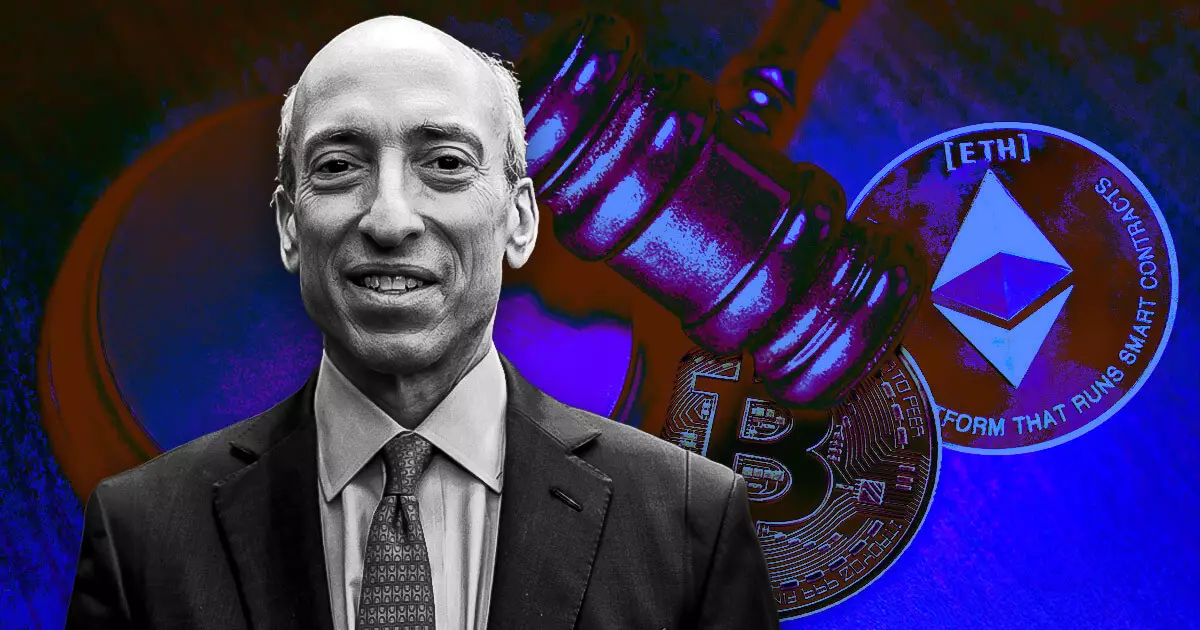The ongoing saga surrounding cryptocurrency regulation in the United States continues to unfold, with the Securities and Exchange Commission (SEC) at the forefront of these discussions. Recently, it has come to light that the SEC is set to reject two applications for Solana (SOL) exchange-traded funds (ETFs). This information emerged from Bloomberg’s ETF analyst Eric Balchunas, who indicated that SEC Chair Gary Gensler’s decision is emblematic of his tenure and its impact on the crypto industry. As Gensler prepares to leave his position in January 2025, these potential rejections symbolize more than just administrative choices; they represent a broader battle between regulatory compliance and the evolving nature of digital assets.
According to reports, sources within the Solana ETF issuers revealed that under Gensler, the SEC will likely not greenlight any new cryptocurrency-related ETFs. This admission marks a pivotal moment—Gensler, who has fiercely scrutinized the crypto industry, leaves behind a legacy rife with legal uncertainties. Analysts believe that any movements towards a Solana ETF approval may need to wait until Paul Atkins assumes leadership as the new SEC chair, following his confirmation from President-elect Donald Trump. This looming shift in SEC leadership introduces a potential turning point for crypto regulation.
In the aftermath of these reports, notable figures in the cryptocurrency space have commented on the implications of Gensler’s decisions. Gabor Gurbacs, a former director of digital asset strategy at VanEck, speculated on the impending vacating of Gensler’s position, suggesting that this moment represents a culmination of frustrations felt by many in the industry. Meanwhile, another Bloomberg ETF analyst, James Seyffart, tempered expectations by underscoring that, despite industry hopes, the reality is that Gensler’s current stance on Solana’s classification as a security severely limits the possibility of these fund approvals.
A Temporary Setback or a Pivotal Change?
The adoption of Solana ETFs, which Seyffart initially estimated to conclude in August 2025, now faces an uncertain timeline due to the SEC’s stringent position and existing lawsuits. His predictions indicate not only a possible delay but also a complex legal landscape for future applications. The SEC’s recent legal maneuverings, particularly in the ongoing case against Binance, reveal a steadfast commitment to regulatory scrutiny, which may determine the fates of numerous cryptocurrencies moving forward.
This raises an important question: will the new SEC administration, once it takes office, adopt a more accommodating approach to digital asset regulation, or will the legal entanglements persist and complicate the process further? In a market already characterized by volatility, these decisions will be critical in shaping investment strategies and the broader acceptance of cryptocurrencies in mainstream finance.
As the cryptocurrency community holds its breath for new developments, it remains clear that this moment is indicative of the larger struggle between innovation and regulation. The outcome of the Solana ETF applications and associated lawsuits may set precedents that affect not only future applications but also the overall perception of digital currencies within financial markets. Whether the future SEC leadership will embrace a more flexible regulatory framework remains to be seen, but the current trajectory suggests a necessary recalibration of expectations in the ever-evolving realm of cryptocurrencies.















